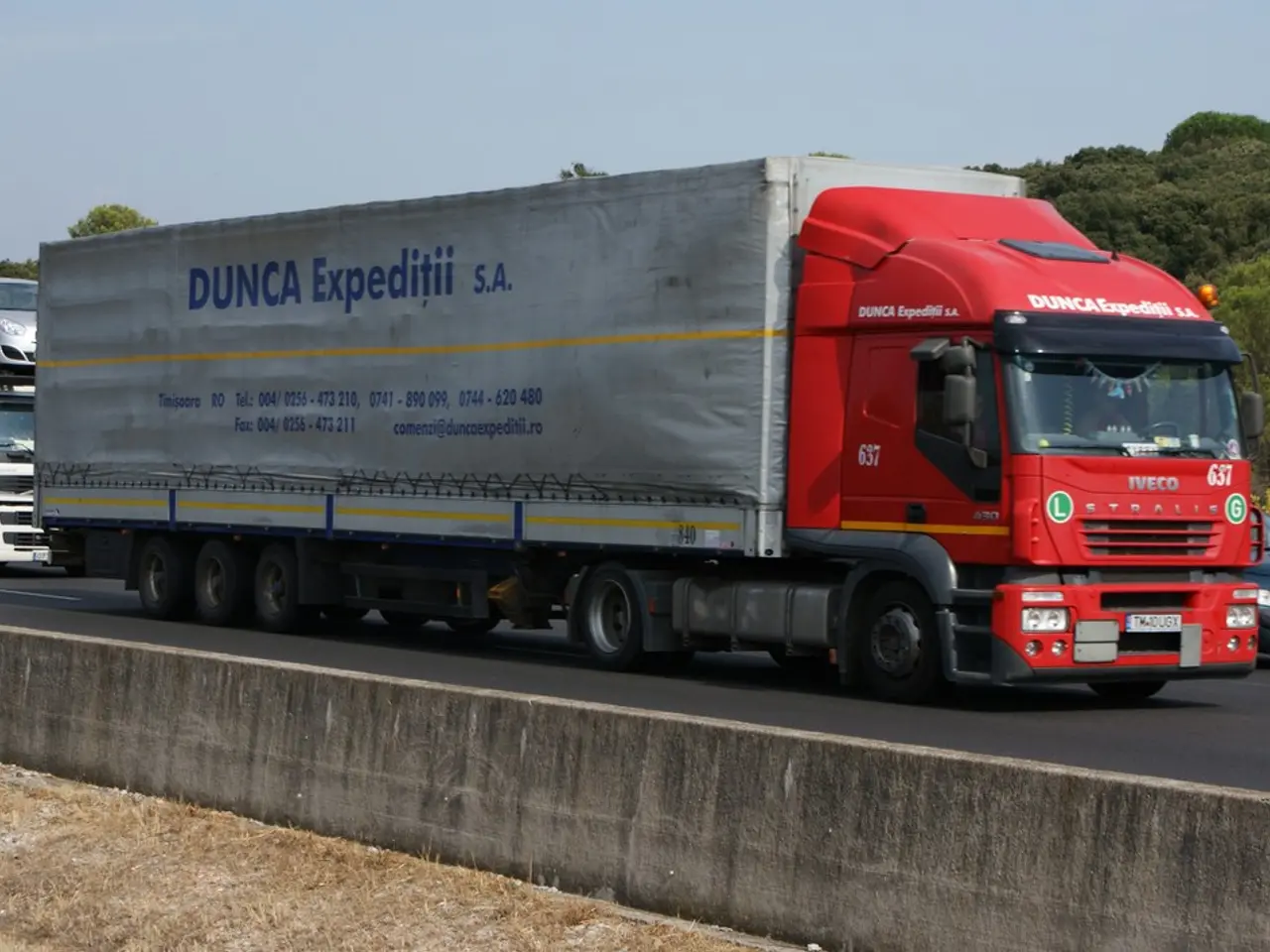Early Termination of Commercial Lease for a Truck: Consequences and Survival Strategies
When considering a commercial truck lease, it's essential to understand the nuances involved. Here are some key factors to consider before making a decision.
Understanding the Basics
Commercial leasing is not like a traditional rental agreement. It's a fixed asset strategy with built-in depreciation, utilization, and resale assumptions. Most full-service commercial leases are fixed-term, with penalties for early return.
Cost Comparisons and Exit Strategies
Before thinking about early termination, it's crucial to check the lease terms in detail, run a cost comparison, and ask about transfer or reassignment options. It's also wise to build an exit strategy into your financial model to protect against potential financial risks.
Financial Implications
Depending on the lease, capitalized cost reductions or deposits made at signing may be forfeited. Early termination fees are contract-specific but are usually based on either a flat penalty or a percentage of the remaining contract value. Leasing companies may also assess depreciation recovery fees when a unit is returned early to offset residual value loss.
Operational Changes
If your business is going through significant operational changes, such as a shift from OTR to dedicated, downsizing to owner-operator-only, or facing similar changes, an extra lease unit may become a liability, justifying early termination.
Fleet Management
It's essential to ensure that your lease matches the type of freight and miles you're actually running to avoid unnecessary expenses. Don't over-fleet based on emotion; adding a truck should be tied to confirmed freight, not a hunch.
Partnership Programmes and Maintenance
Defaulting on a lease may lead to loss of access or increased fees in OEM maintenance programs or fuel card networks. If a leased truck is returned early, maintenance cost reconciliation may be required if scheduled maintenance or inspections have been underutilized.
Collection Activity and Credit Impact
Unpaid lease balances will be sent to collections and reported against your business credit file. A default on one lease can disqualify you from getting another truck financed due to communication among equipment financing companies through shared databases.
Flexible Terms and Buyout Options
Seek out companies that offer shorter lease terms or seasonal options to better align with your operational needs. If your lease allows for a buyout, the purchase price may be lower than the penalties for early return, potentially allowing for resale of the truck on the open market.
Negotiating Settlements
If keeping the truck isn't feasible and early termination is initiated, negotiating a settlement is an option. Companies like Ryder, Penske, and Enterprise Truck Rental offer flexibility options for early termination of commercial truck leases, typically available in cases such as business downturns, fleet downsizing, or specific contractual clauses allowing early exit with notice and possible fees.
In conclusion, understanding the ins and outs of commercial truck leasing can help you make informed decisions that protect your business's financial health. Always remember to carefully review your lease terms, consider your operational needs, and seek out providers that offer flexible terms to ensure a smooth leasing experience.
Read also:
- visionary women of WearCheck spearheading technological advancements and catalyzing transformations
- A continuous command instructing an entity to halts all actions, repeated numerous times.
- Oxidative Stress in Sperm Abnormalities: Impact of Reactive Oxygen Species (ROS) on Sperm Harm
- Genetically manipulated rabbits sprout ominous black horns on their heads








